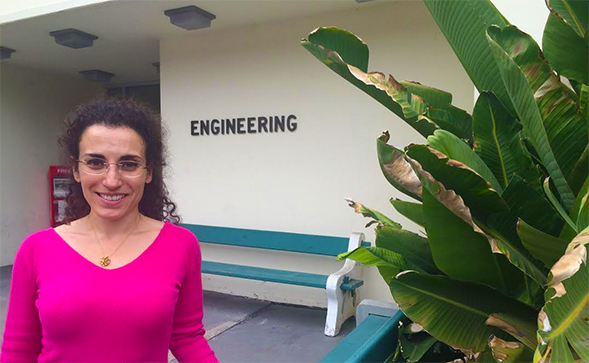Early Career Splash for Battiato
SDSU Mechanical Engineering assistant professor Ilenia Battiato has received an Early Career Research Program Grant from the Department of Energy.

The U.S. Department of Energy’s Office of Science has selected 44 scientists from across the nation — including Ilenia Battiato, an assistant professor of mechanical engineering at San Diego State University — to receive funding as part of DOE’s Early Career Research Program.
The effort, now in its sixth year, is designed to bolster the nation’s scientific workforce by providing support to exceptional researchers during the crucial early career years, when many scientists do their most transformative work.
Battiato will receive at least $150,000 per year for five years to cover summer salary and research expenses.
“Supporting talented researchers in their early career years is one key to building and maintaining an effective scientific workforce for the nation,” said Patricia M. Dehmer, Acting Director of DOE's Office of Science. “We congratulate the winners of this year’s competition and look forward to following their achievements over the next five years.”
Making an impact
Battiato, who is 34-years-old, began teaching at SDSU in 2014. “As scientists, we promote ideas to advance scientific knowledge and to serve society,” she said. “Ideas are our very intimate creations, the result of many years of hard work. One of the biggest rewards a scientist could hope for is when their ideas are embraced, supported and promoted by the scientific community. That is what makes this award so exciting and rewarding.”
Battiato’s research has the potential to someday help slow down the effects of global warming by helping scientists better understand how carbon dioxide (CO2) sequestration works. CO2 sequestration is one potential technology for controlling and stabilizing atmospheric carbon emissions. It works by trapping CO2 in geologic formations for thousands of years.
The grant from the Department of Energy will fund Battiato’s work to improve our understanding of how highly reactive fluids like CO2, interact with host rocks in the subsurface over multiple scales. This understanding is critical to control the risks associated with possible leaking of trapped CO2 in geologic formations such as carbonate rocks. A full abstract is available online.



